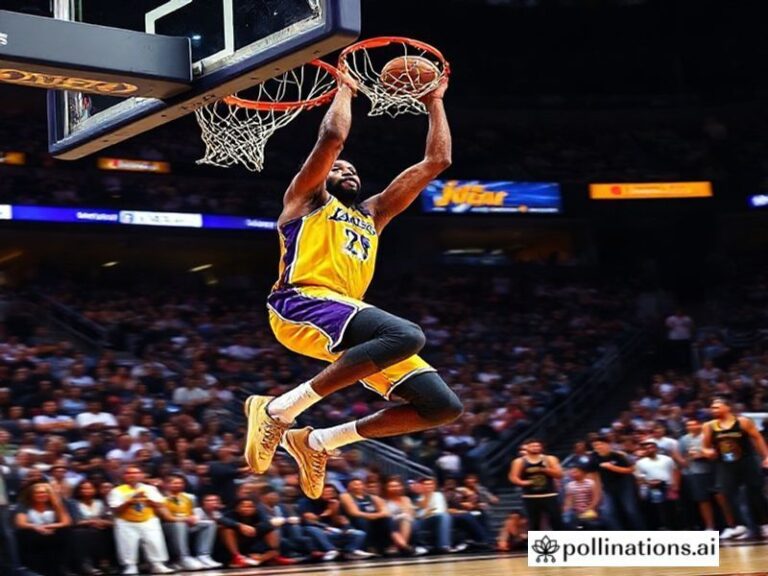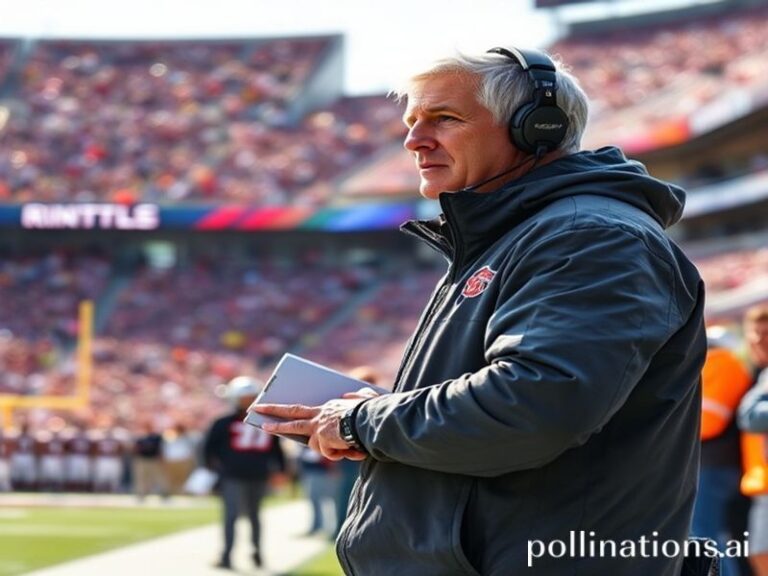Tommy Fleetwood: Europe’s Soft-Power Mullet and the Geopolitics of Polite Golf
Tommy Fleetwood’s Hair, the Ryder Cup, and the Fragile Illusion of National Pride
By our man in the cheap seats, somewhere between Manchester and Marseille
If you squint through the smog of geopolitical despair, the name “Tommy Fleetwood” sounds less like a golfer and more like a failed 19th-century British trade policy—something that accidentally colonized a tropical island and left it with nothing but a statue and a 3-handicap. Yet here we are, another summer, another international tournament, and Fleetwood is once again the polite, well-coiffed embodiment of Europe’s last functioning export: hope on a stick, wrapped in a Hugo Boss collar and launched down a fairway at 180 mph.
The wider world, of course, does not run on birdies and bogeys. It runs on lithium, brinkmanship, and the unshakable human conviction that someone else’s misery must be profitable. Still, every two years the Ryder Cup arrives like a boozy NATO summit with better knitwear, and Fleetwood becomes the continent’s accidental geopolitical weapon: a 33-year-old Englishman whose greatest act of aggression is a gentle fist-bump and a “nice one, Bob.” Watch him walk the fairways of Rome, Melbourne, or wherever television’s next postcard is filmed, and you’ll witness the last pocket of European cooperation that doesn’t end in a subsidy dispute or a fish fight.
Global implications? Absolutely. While the planet rehearses World War III in 280-character increments, Fleetwood and his American counterparts perform the modern equivalent of a medieval joust—only the horses are Nike-sponsored, the lances are graphite, and the peasants watching from the ropes pay $14 for watered-down lager. Victory means the winning continent gets to pretend, for 24 glorious months, that it still has a spine. Defeat means you fly home in business class, comforted only by the knowledge that your foursomes partner will blame you in an upcoming Netflix documentary.
Fleetwood’s particular charm is that he looks like he wandered in from a Smiths album cover and accidentally started piping drives 320 yards. The hair—oh, that windswept monument to defiance—has become a Rorschach test: Brits see a Beatles reboot, Koreans see a K-drama heart-throb, Americans see “some Euro guy we’ll probably beat.” In an age when soft power is measured in TikTok dances and microchip sanctions, his follicles alone are worth a medium-sized trade agreement. If Washington could weaponize conditioner, Fleetwood would already be sanctioned.
But the cynic’s lens reveals the real spectacle: national identities stapled together by a game invented to let Scottish shepherds murder time and sheep simultaneously. The Ryder Cup sells tribalism in pastel slacks, and Fleetwood—soft-spoken, perennially runner-up in majors—plays the role of the gentle assassin. He smiles, he loses to Scheffler on Sunday, and still signs every autograph because that’s what you do when your real job is maintaining the illusion that sports transcend commerce. Spoiler: they don’t. The trophy will end up in a glass case at some airline-branded “Experience Center,” and the players will fly private to the next Saudi-backed exhibition where human-rights questions are politely escorted off the property like a drunk spectator.
Yet even the jaded correspondent must concede this: for three days the planet’s most volatile economic blocs agree to settle grievances with a 1.68-inch ball instead of a hypersonic missile. That’s Tommy Fleetwood’s true international significance—he’s a walking, talking ceasefire with a swing coach. When he and McIlroy hug after a Saturday four-ball win, you can almost hear the Eastern European infantryman lower his rifle for a second and think, “Maybe I won’t freeze to death this winter; maybe I’ll take up golf.” He won’t, of course. The clubhouse fees alone require a small IMF loan.
So here’s to Fleetwood, the last Brit who can enter continental Europe without a visa lecture. May his drives stay straight, his hair stay unruly, and may we continue to mistake his polite tee-shots for the possibility that human beings might still compete without carpet-bombing the economy. Fore!—or as they now say in the strategy papers, “Phase One of the Special Fairway Operation.”







